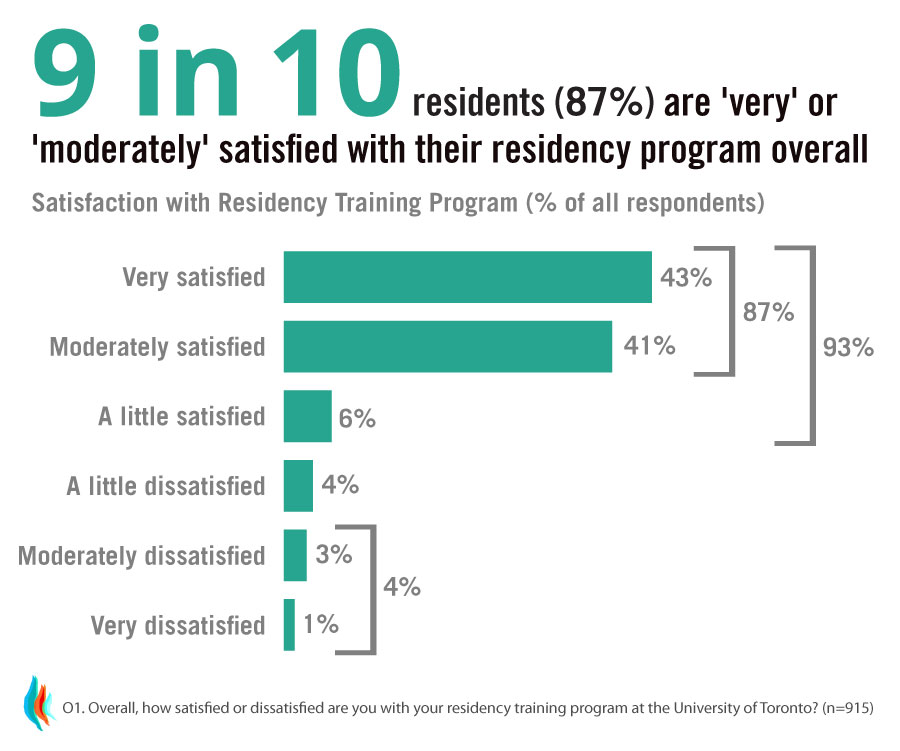Voice of the Resident
93% of our residents today are satisfied with their residency training program at the University of Toronto. How do we know? We asked them.
From 2005 to 2014 the PGME office conducted an annual Survey of Exiting Residents. At first, the survey provided new information about residents’ educational experience, work environment, and future career plans. The findings of the survey helped to inform initiatives to assist with career planning, resident wellness and other program improvements. In more recent years, there were fewer new insights to inform programming. At the same time, new questions were arising which couldn’t be answered from the Survey of Exiting Residents. How does the residency experience change throughout the life course of a resident? Do residents’ well-being and their intent to practice change over the course of training? If so, how?
To address these and other needs, PGME staff developed an innovative new program of research, “the Voice of the Resident”. It includes three distinct surveys: A year-end reflection survey of all residents, an entrant survey of new PGY1s, and a planned survey of our ‘alumni’ two and ten years post- residency. An exciting new feature of the program is its opt-in longitudinal panel. The panel will allow us to track residents’ experiences, attitudes, and intent to practice throughout the life course of their residency, while strictly maintaining confidentiality.
The inaugural Reflection survey was launched in May 2016. All residents (n=1808) were sent an email invitation to complete the survey, which garnered a 54% response rate. The survey questionnaire focused on the 2015-16 academic year and included modules on: the residency experience; social responsibility, wellness, and intent to practice. In addition, we worked closely with Dr. Lisa Robinson, Chief Diversity Officer for the Faculty of Medicine, to ensure the questionnaire included a strong diversity, equity and inclusion module that would help improve our understanding of the diversity of our residents across many dimensions. Each year, the surveys may contain one or more new modules that focus on particular facets of the residency experience.
Our first Reflection survey revealed that 59% of residents describe their work environment this past academic year as ‘excellent’ or ‘very good’. The level of satisfaction varies greatly by department and demographic group. University of Toronto residents are ethnically diverse. Half are an ethnicity other than Caucasian. Overall, there are almost equal proportions of females and males; however, this also varies widely by department. One in ten residents does not identify as heterosexual. Eighty percent of residents often or sometimes had opportunities available to them to pursue a tailored training experience in areas of particular interest last academic year (Strategic Plan Action #1.2). With respect to social responsibility, 97% of all residents feel they have a professional responsibility to facilitate equitable access to healthcare. Almost nine in ten residents definitely or probably plan to be a clinical teacher. A topline report of the findings will be available on the PGME website in early 2017.


